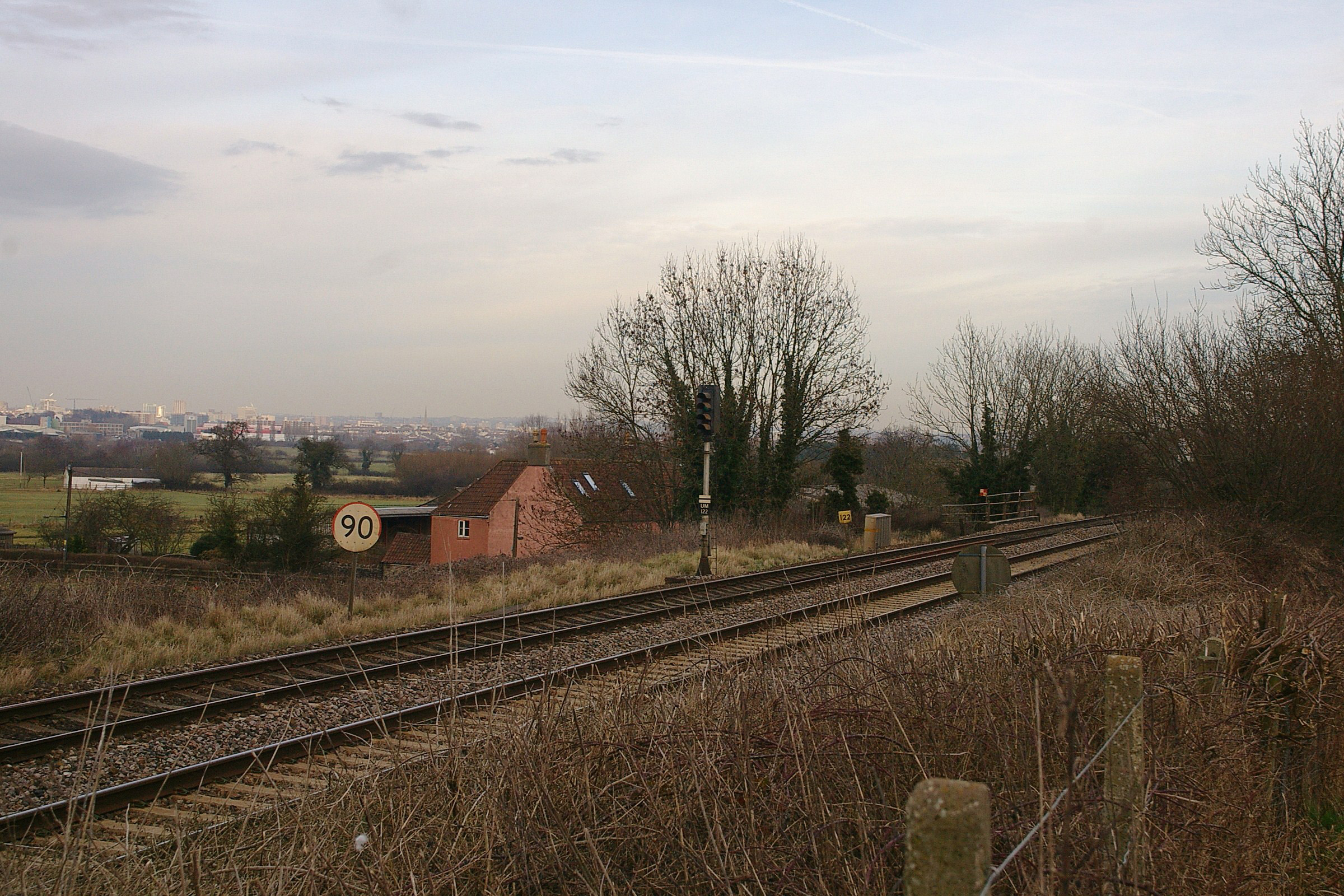|
Hele, Devon
Hele is a village in Devon, England, lying about SSW of Bradninch and NNE of Exeter. The village is home to a paper mill once belonging to the company Wiggins Teape, now part of the multinational company Purico Group. The Devon Valley Mill produces sausage casing paper and teabag paper under the "Crompton Paper" brand name. The mill site was originally that of a grist mill which was converted to a paper mill in 1762. It was here that John Dewdney produced the first glazed writing paper in England in the 1840s. He was also famously called upon to supply the paper for the catalogues of the Great Exhibition in 1851. The nearby railway station, now closed, used to serve Hele and Bradninch Bradninch is a small town and former manor in Devon, England, lying about south of Cullompton. Much of the surrounding farmland belongs to the Duchy of Cornwall. There is an electoral ward with the same name. At the 2011 Census the ward pop .... References External links Descripti ... [...More Info...] [...Related Items...] OR: [Wikipedia] [Google] [Baidu] |
Devon
Devon ( , historically known as Devonshire , ) is a ceremonial and non-metropolitan county in South West England. The most populous settlement in Devon is the city of Plymouth, followed by Devon's county town, the city of Exeter. Devon is a coastal county with cliffs and sandy beaches. Home to the largest open space in southern England, Dartmoor (), the county is predominately rural and has a relatively low population density for an English county. The county is bordered by Somerset to the north east, Dorset to the east, and Cornwall to the west. The county is split into the non-metropolitan districts of East Devon, Mid Devon, North Devon, South Hams, Teignbridge, Torridge, West Devon, Exeter, and the unitary authority areas of Plymouth, and Torbay. Combined as a ceremonial county, Devon's area is and its population is about 1.2 million. Devon derives its name from Dumnonia (the shift from ''m'' to ''v'' is a typical Celtic consonant shift). During the Briti ... [...More Info...] [...Related Items...] OR: [Wikipedia] [Google] [Baidu] |
Bradninch
Bradninch is a small town and former manor in Devon, England, lying about south of Cullompton. Much of the surrounding farmland belongs to the Duchy of Cornwall. There is an electoral ward with the same name. At the 2011 Census the ward population was 2,041. In 2012, in research of 2,400 postcodes in England and Wales which took into account 60 separate factors of interest to young families, Bradninch was found to be the fifteenth most family friendly location in the country. The town is twinned with Landunvez in Brittany. Toponymy The place-name 'Bradninch' is first attested in the Domesday Book of 1086, where it appears as 'Bradenese'; the name is thought to mean 'broad oak' or 'broad ash'. Seventy-nine different spellings of the name of the town have been recorded. History Anglo-Saxon Bradninch dates back to before the 7th century and at some time there was almost certainly a Norman or Anglo-Saxon fortress on Castle Hill. There are no physical remains, and no known p ... [...More Info...] [...Related Items...] OR: [Wikipedia] [Google] [Baidu] |
Exeter
Exeter () is a city in Devon, South West England. It is situated on the River Exe, approximately northeast of Plymouth and southwest of Bristol. In Roman Britain, Exeter was established as the base of Legio II Augusta under the personal command of Vespasian. Exeter became a religious centre in the Middle Ages. Exeter Cathedral, founded in the mid 11th century, became Anglican in the 16th-century English Reformation. Exeter became an affluent centre for the wool trade, although by the First World War the city was in decline. After the Second World War, much of the city centre was rebuilt and is now a centre for education, business and tourism in Devon and Cornwall. It is home to two of the constituent campuses of the University of Exeter: Streatham and St Luke's. The administrative area of Exeter has the status of a non-metropolitan district under the administration of the County Council. It is the county town of Devon and home to the headquarters of Devon County Council. A p ... [...More Info...] [...Related Items...] OR: [Wikipedia] [Google] [Baidu] |
Wiggins Teape
Arjowiggins is an independent paper manufacturer based in Scotland. History The company's origins go back to 1761 when Buckland Mill in Dover in Kent commenced operations. Meanwhile, in France, in the middle of the 20th century there were four competing paper mills that manufactured sophisticated paper products with high added value, especially security papers (banknotes, passports, etc.). A joint merger plan was drawn up in 1954 and led to the formation of the first French paper-manufacturing group: Arjomari. The name of the group came from the first two letters of the names of the paper mills participating in the merger: Arches, Johannot, Marais, Rives. In 1890 Buckland Mill was bought by ''Wiggins Teape'', a paper milling business formed some 40 years earlier by Edward Wiggins and Henry Teape. In 1970 the company was acquired by BAT Industries, who went on to acquire ''Appleton Papers'' of the US in 1978. The business expanded rapidly in the 1980s as it exploited the ma ... [...More Info...] [...Related Items...] OR: [Wikipedia] [Google] [Baidu] |
Disused Railway Stations (Bristol To Exeter Line)
There are 22 disused railway stations in the between and , 12 of which have structures that can still be seen from passing trains. Most were closed in the 1960s but four of them, especially around , were replaced by stations on new sites. 13 stations remain open on the line today, but there have been proposals to reopen stations at Cullompton and Wellington. Background The route was opened by the Bristol and Exeter Railway in stages between 1841 and 1844. In 1876 this company was amalgamated with the Great Western Railway which, in turn, was nationalised into British Railways in 1948. It is now owned by Network Rail. Apart from the temporary station at Beam Bridge which was only used for a year, the earliest closures were in the Weston-super-Mare area in order to provide new facilities for the traffic to that town, which was much greater than predicted when the line was planned. The majority of the remaining closures followed Dr Beeching's '' Reshaping of British Railwa ... [...More Info...] [...Related Items...] OR: [Wikipedia] [Google] [Baidu] |
Villages In Devon
A village is a clustered human settlement or community, larger than a hamlet but smaller than a town (although the word is often used to describe both hamlets and smaller towns), with a population typically ranging from a few hundred to a few thousand. Though villages are often located in rural areas, the term urban village is also applied to certain urban neighborhoods. Villages are normally permanent, with fixed dwellings; however, transient villages can occur. Further, the dwellings of a village are fairly close to one another, not scattered broadly over the landscape, as a dispersed settlement. In the past, villages were a usual form of community for societies that practice subsistence agriculture, and also for some non-agricultural societies. In Great Britain, a hamlet earned the right to be called a village when it built a church. [...More Info...] [...Related Items...] OR: [Wikipedia] [Google] [Baidu] |




